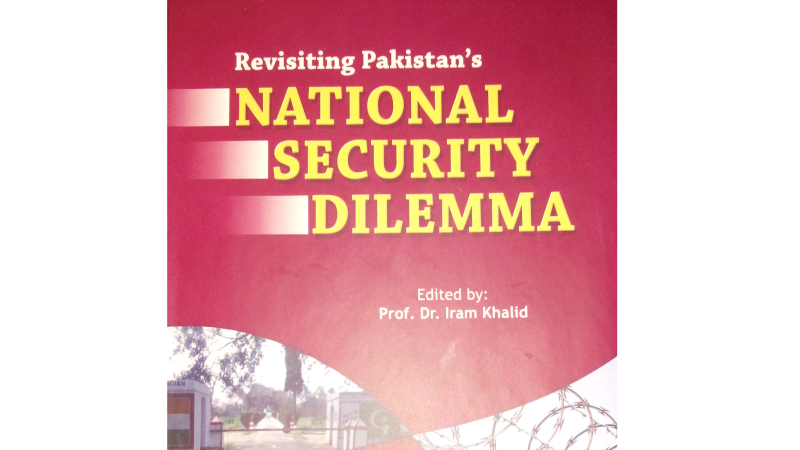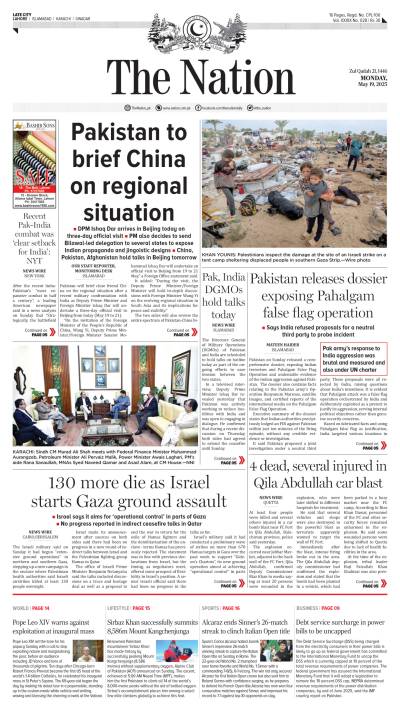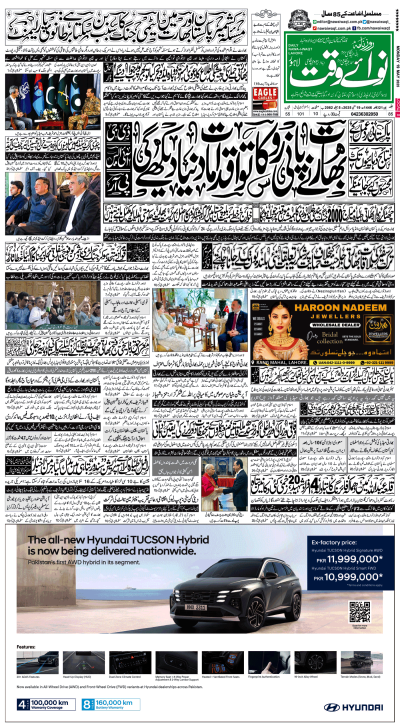National security is a much debated idea right now in Pakistan. Counter-terrorism and counter-insurgency campaigns have drawn the attention for formulation of a comprehensive national security plan. Every effort in Pakistan to define national security concerns has always been overshadowed with internal or external influences. The need of the hour is to define national security through a broad lens. Myopic vision has led to imprecise understanding of national and international challenges. Every time the quest of national security description is eclipsed by institutional interests. A thorough research of the national security dilemma, both within and without, was much needed.
Revisiting Pakistan’s National Security Dilemma is an effort of Prof. Dr. Iram Khalid and her team of students to outline interior and exterior challenges to national security. The discussion is certainly initiated with conceptual explanation of national security to make it comprehensible for a reader to get insight into its basis. It aligns with the academic style of defining and outlining phenomena. Various international and national models of national security have been discussed briefly as a comparison to the flailing structure of national security in Pakistan. Theoretical framework of national security is also a part of the initial chapters of the book, to have academic comprehension of the phenomenon. Certainly without scrutinizing foreign policy threats Pakistan’s national security concerns cannot be defined. Among them India and Afghanistan are dominant factors. When foreign policy threats are defined, foreign policy constraints are also discussed to shed light on the very intrinsic impediments to achieve sound foreign policy. These impediments are described as trust deficit, territorial disputes and continued roller coaster in relations.
Internal dilemma of Pakistan’s weak security pattern is highlighted as weaknesses of system and state. Ethnicity, sectarianism, multiform education system, institutional incapacity, incoherent social fabric is the key cause of internal disharmony and inability to lay down national security policy. Economy is the main factor behind various woes of Pakistan. Since inception it has been victim of weak economy and meagre economic development. Weak and ineffective taxation system is the major hindrance.
Media is characterized as the fourth pillar of the state. It may be incorrect theoretically and constitutionally, but it plays a vital role in Pakistan’s security. During the last decade media went through a major phase of transition, which had far reaching impact on Pakistan’s politics. Without discussing the role of media, national security in twenty first century cannot be characterized as complete. This book discusses role of media in Pakistan, especially electronic, which has access to almost every citizen. Measuring its present impact may lead to calculation of its role in future.
Pakistan government presented its first national internal security policy in 2014. But it was more an operational strategy to counter terrorism. This book encompasses a detailed plan to fight terrorism and ensure security in urban areas through non-traditional measures. It is presented as a grand strategy to deal with growing issues of violence, addressing root causes not just its implications. An academic study of the issue certainly stands out.
Non-traditional security is still not deliberated in Pakistan as a mounting threat to national security. But overall human security is under threat in Pakistan leading to various perils in different forms. When human security is not ensured, unsatisfactory humans may turn out to be a considerable threat to national security. This book also analyses in detail the human security issues of Pakistan. With non-traditional security the focus on traditional security cannot be changed in Pakistan. Armed forces of Pakistan are the backbone of its security. A detailed account of role of armed forces in Pakistan has been presented. Dominant role of Pakistan military is often criticized, ignoring the stark realities of security concerns of state.
National security is the issue which requires much debate but on the academic level. This is absent in Pakistan’s case. This book is just an initiative which certainly lacks various aspects. But at least an initiative has been taken which may further be developed. This research has opened avenues of further studies on the subject.






